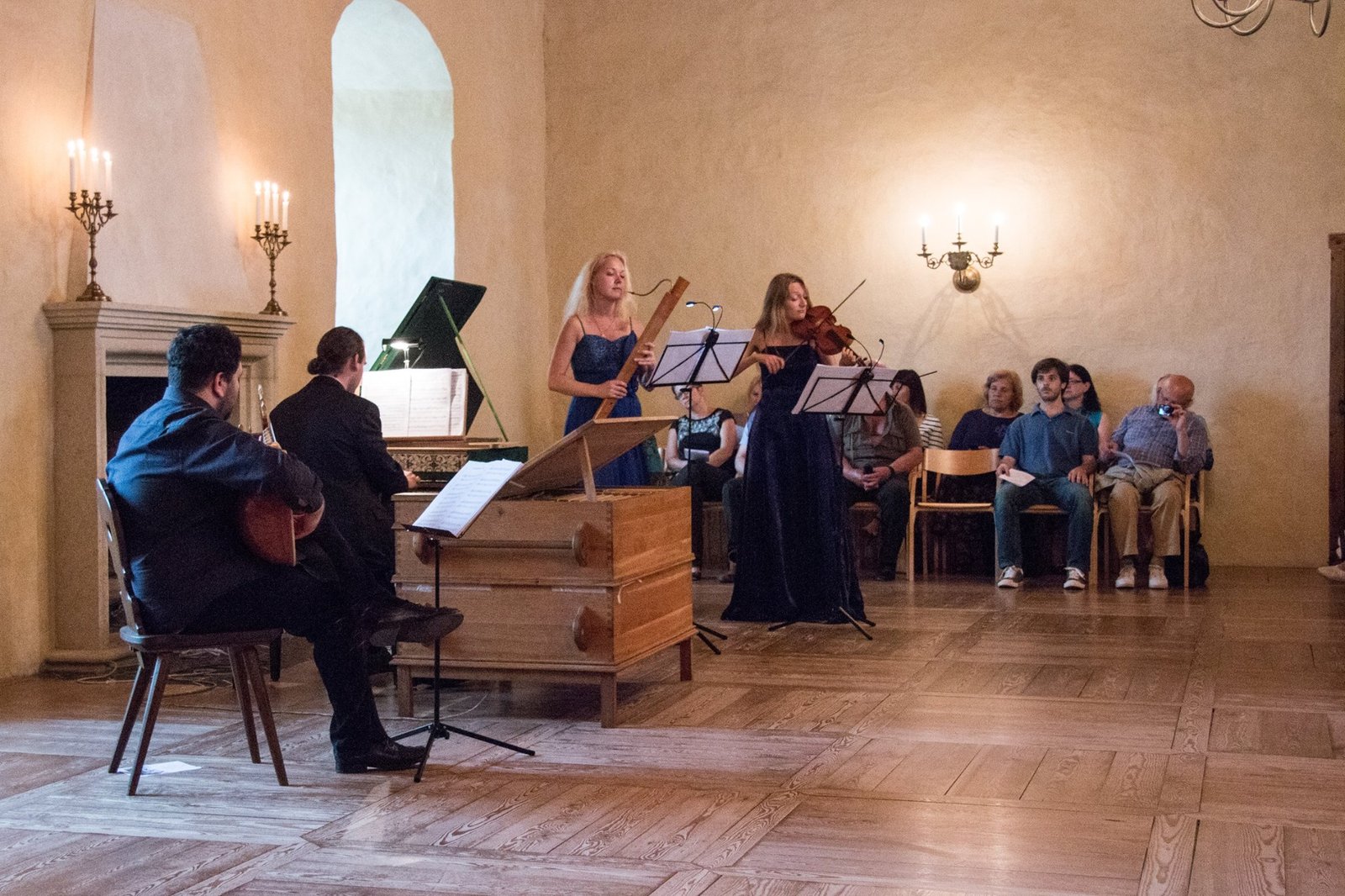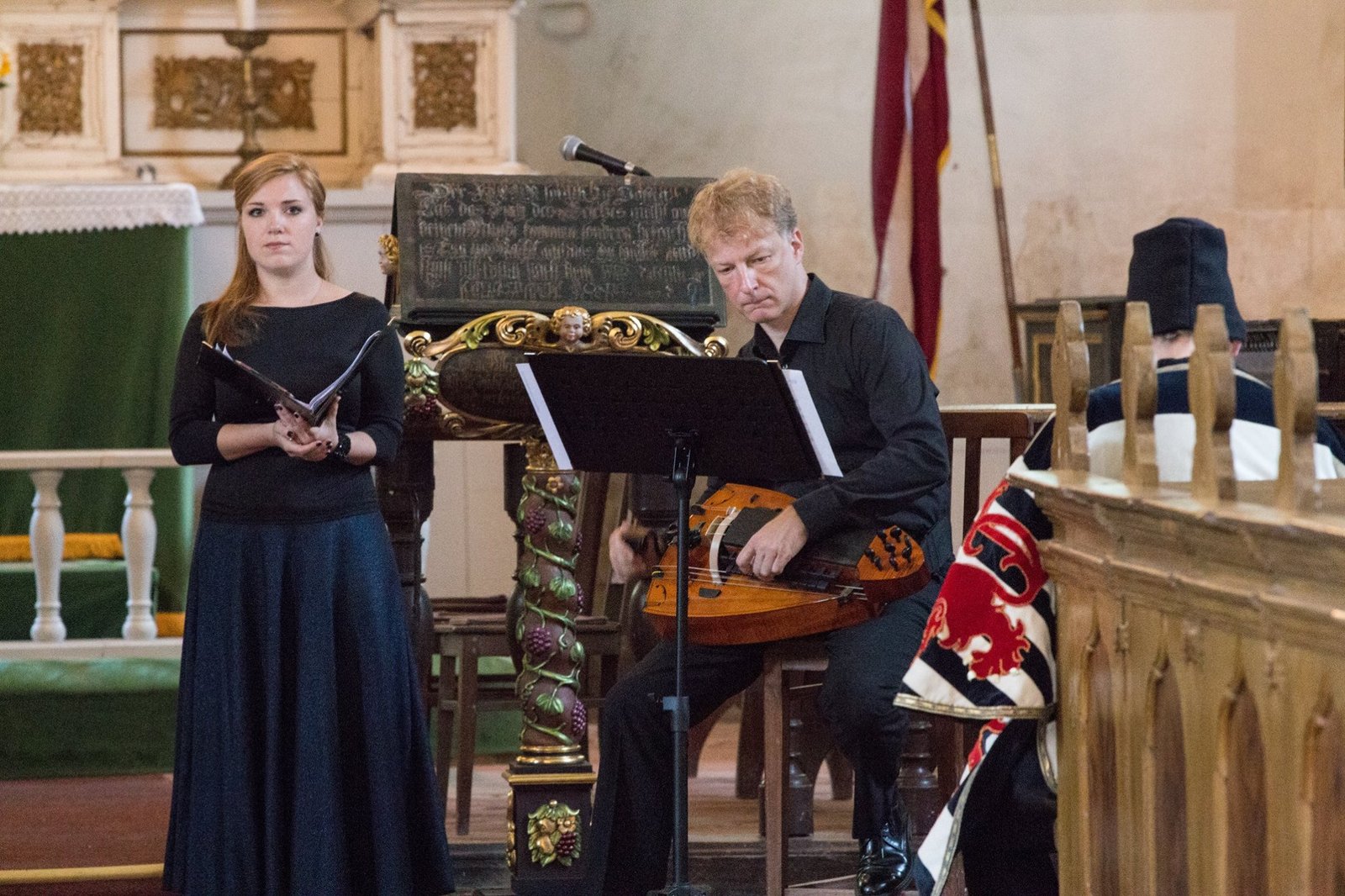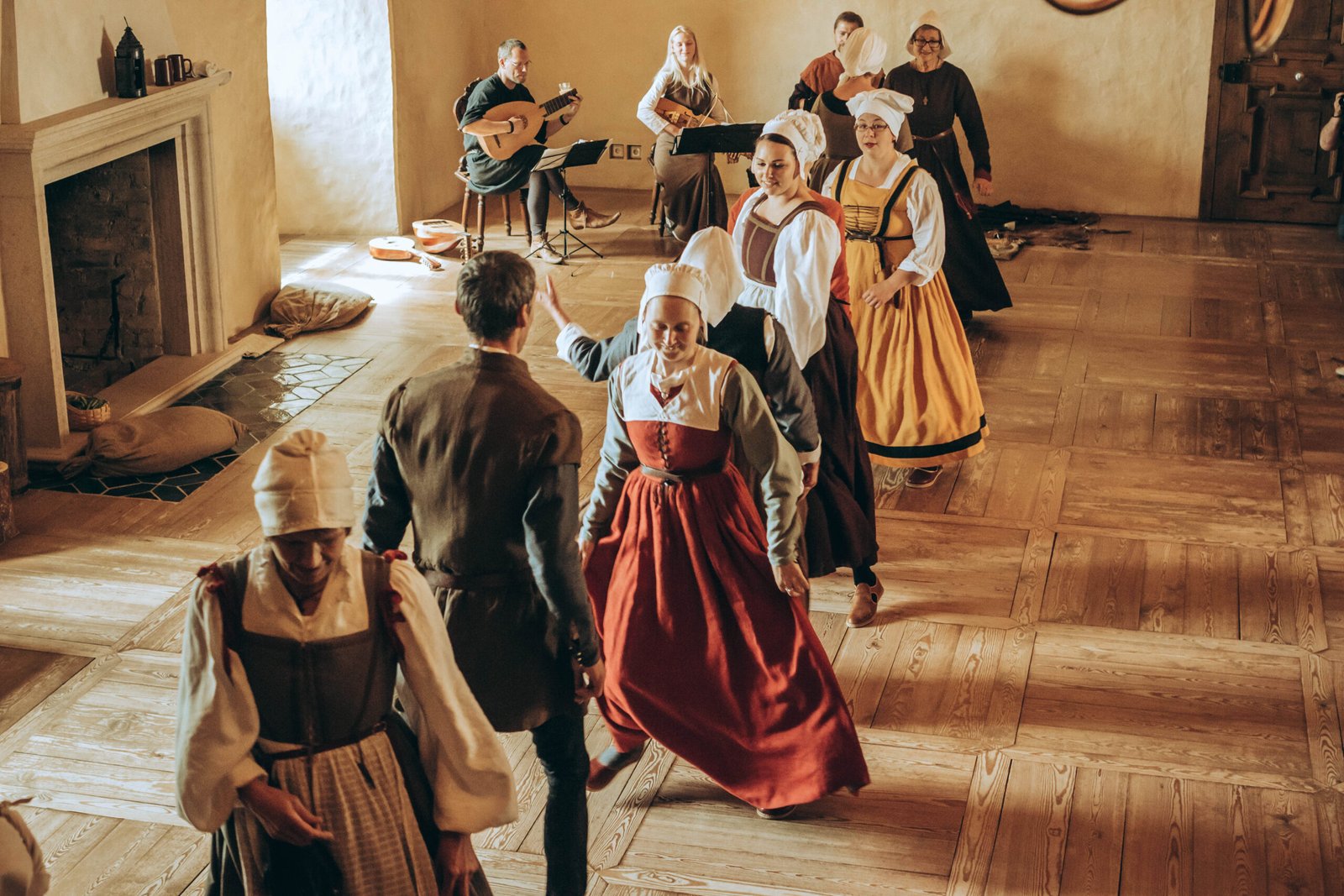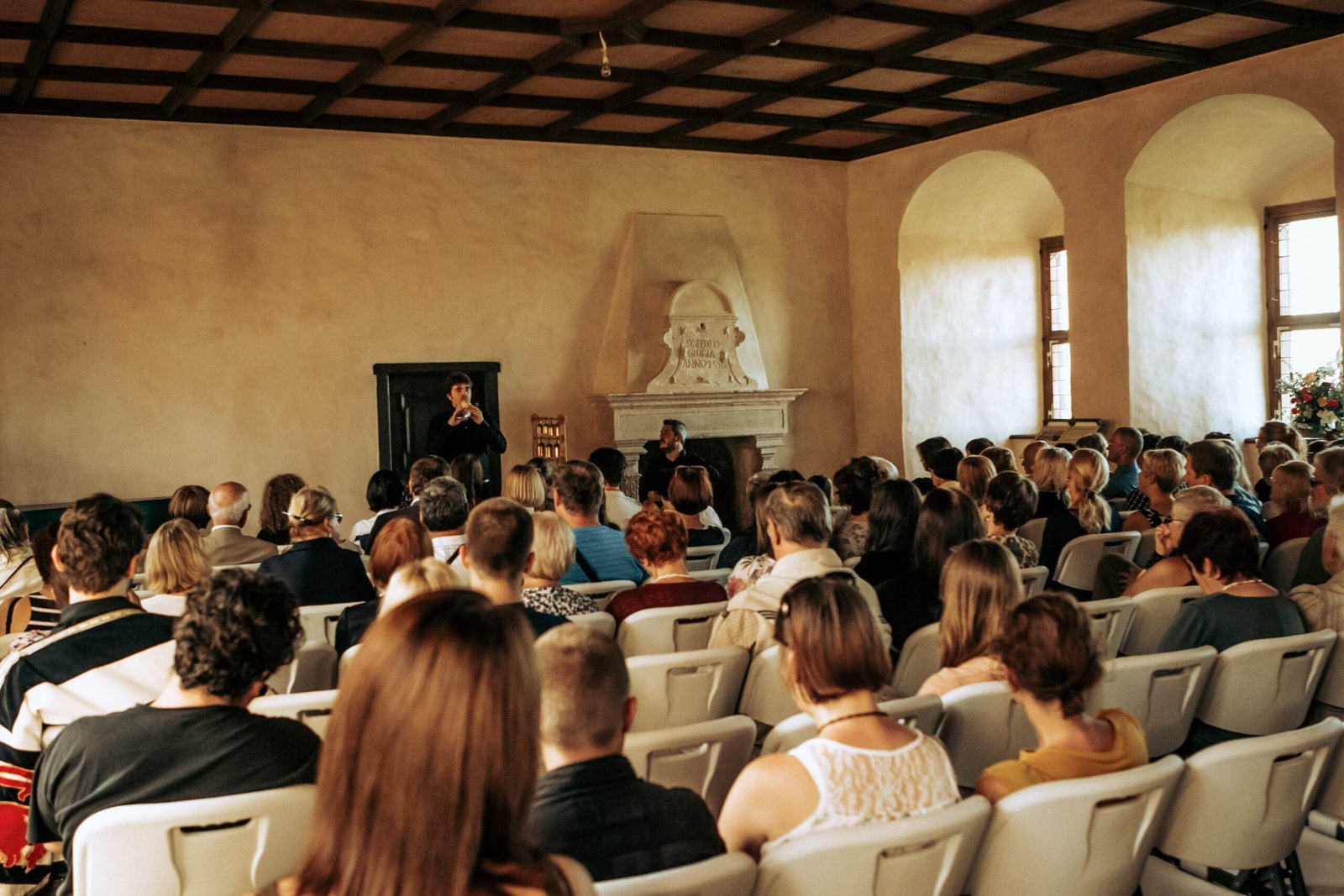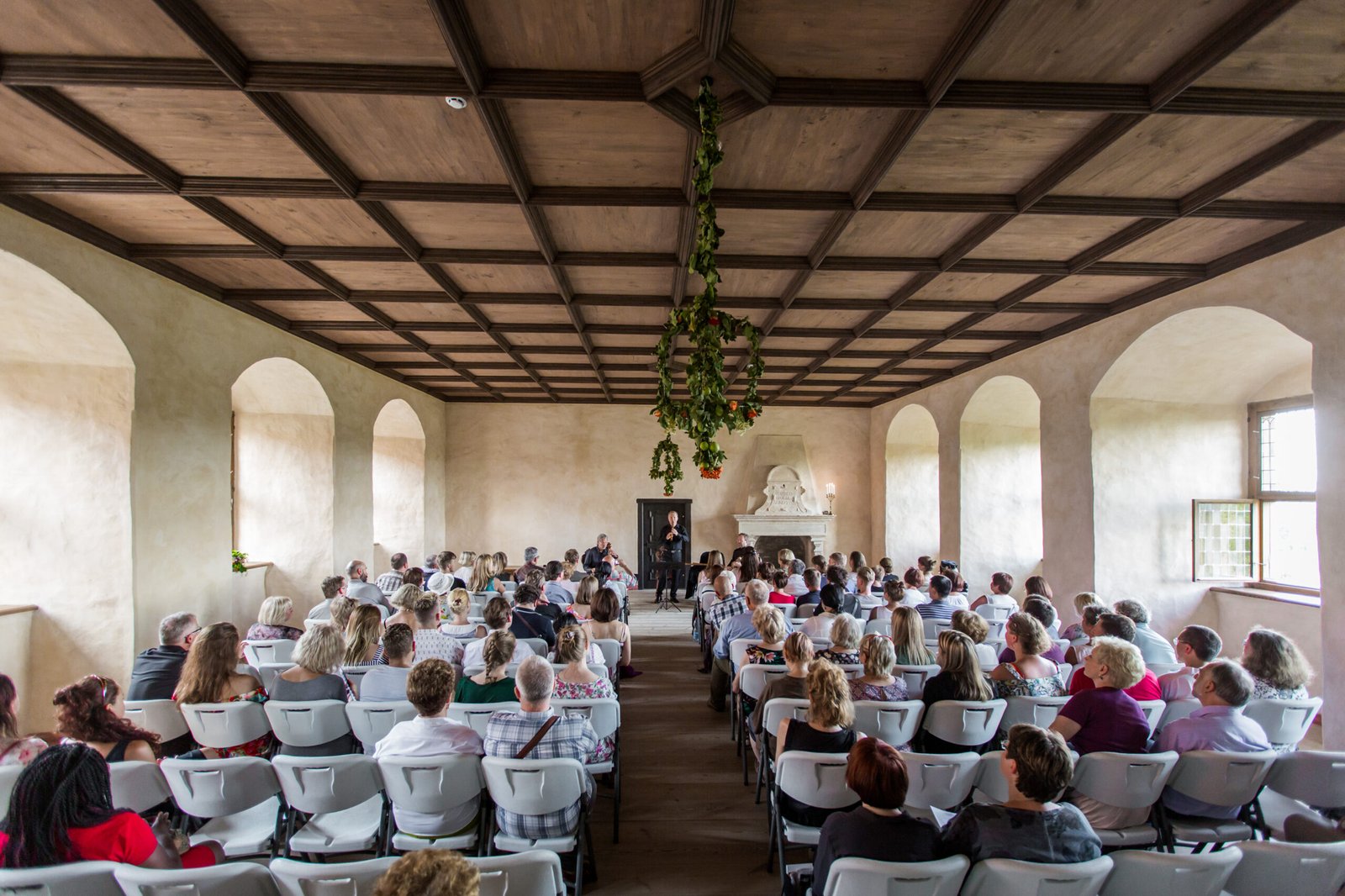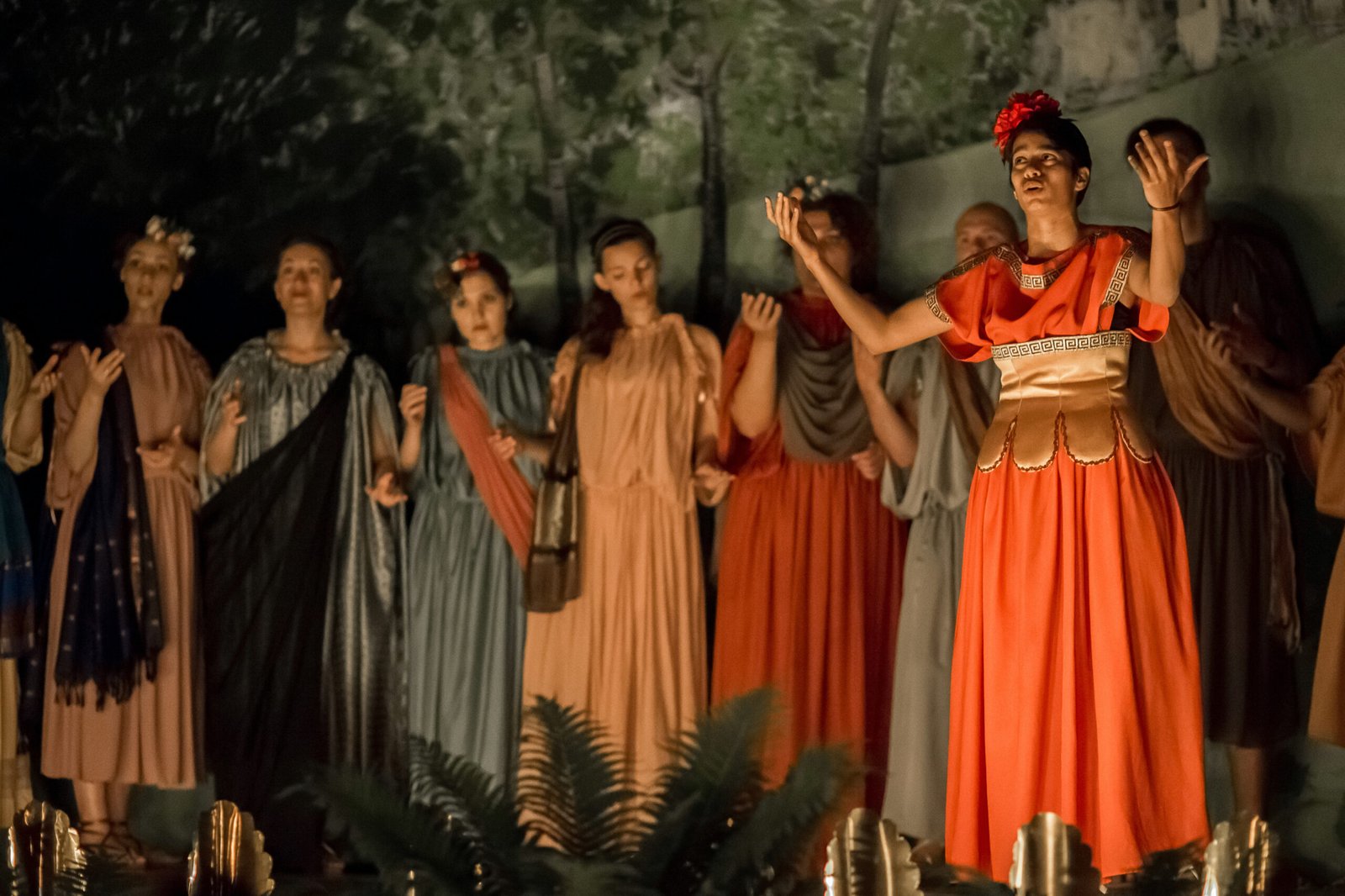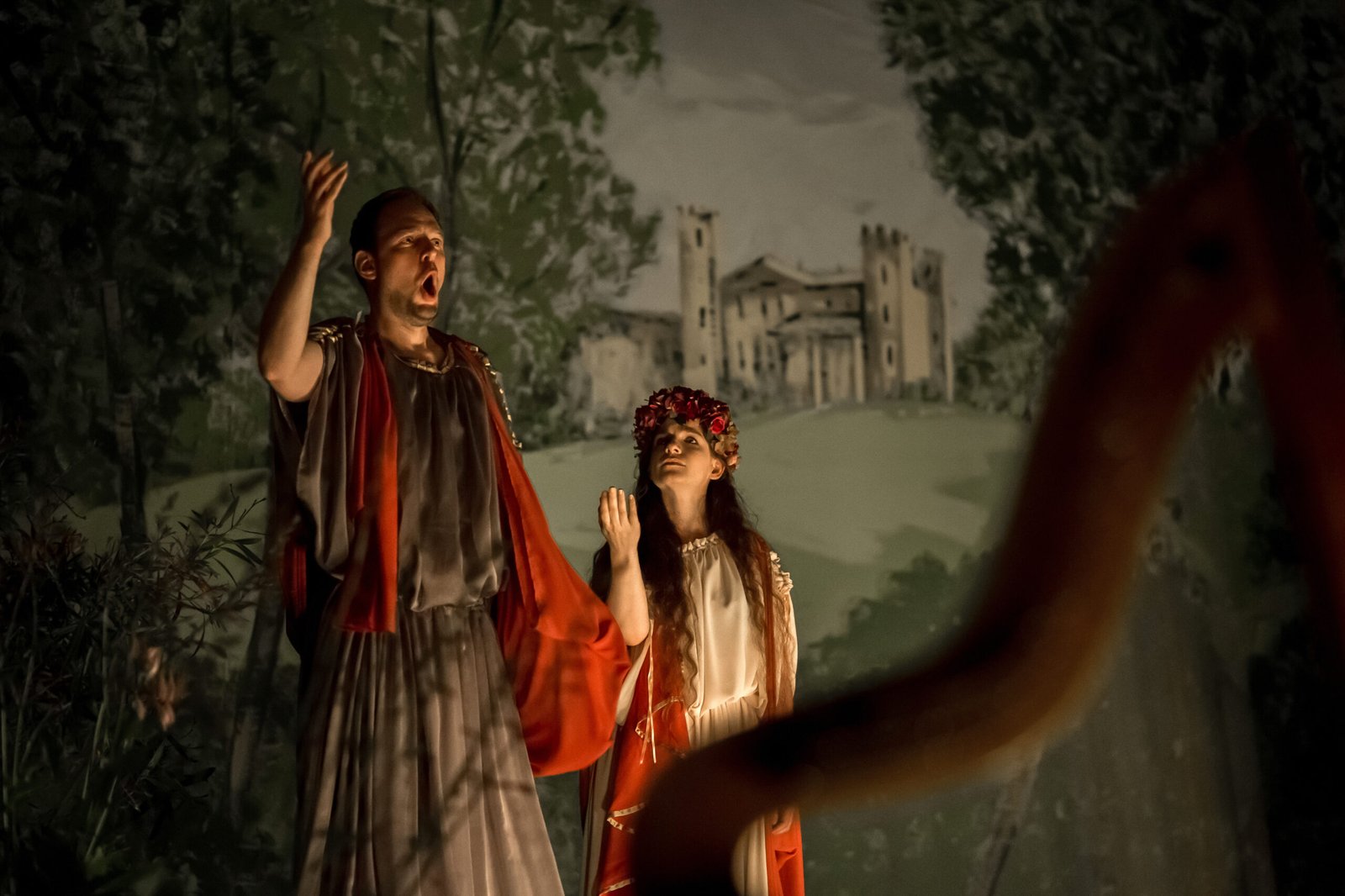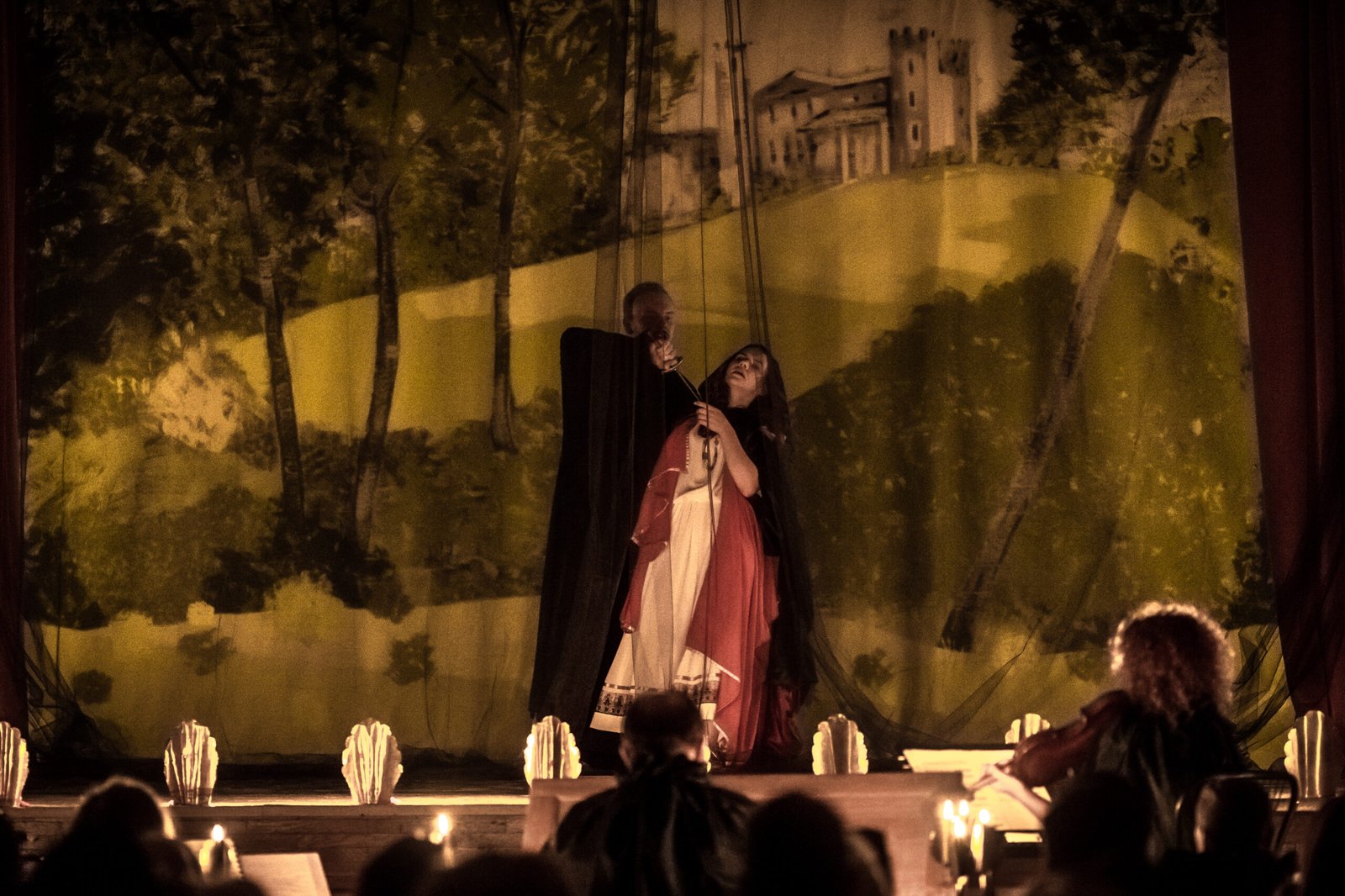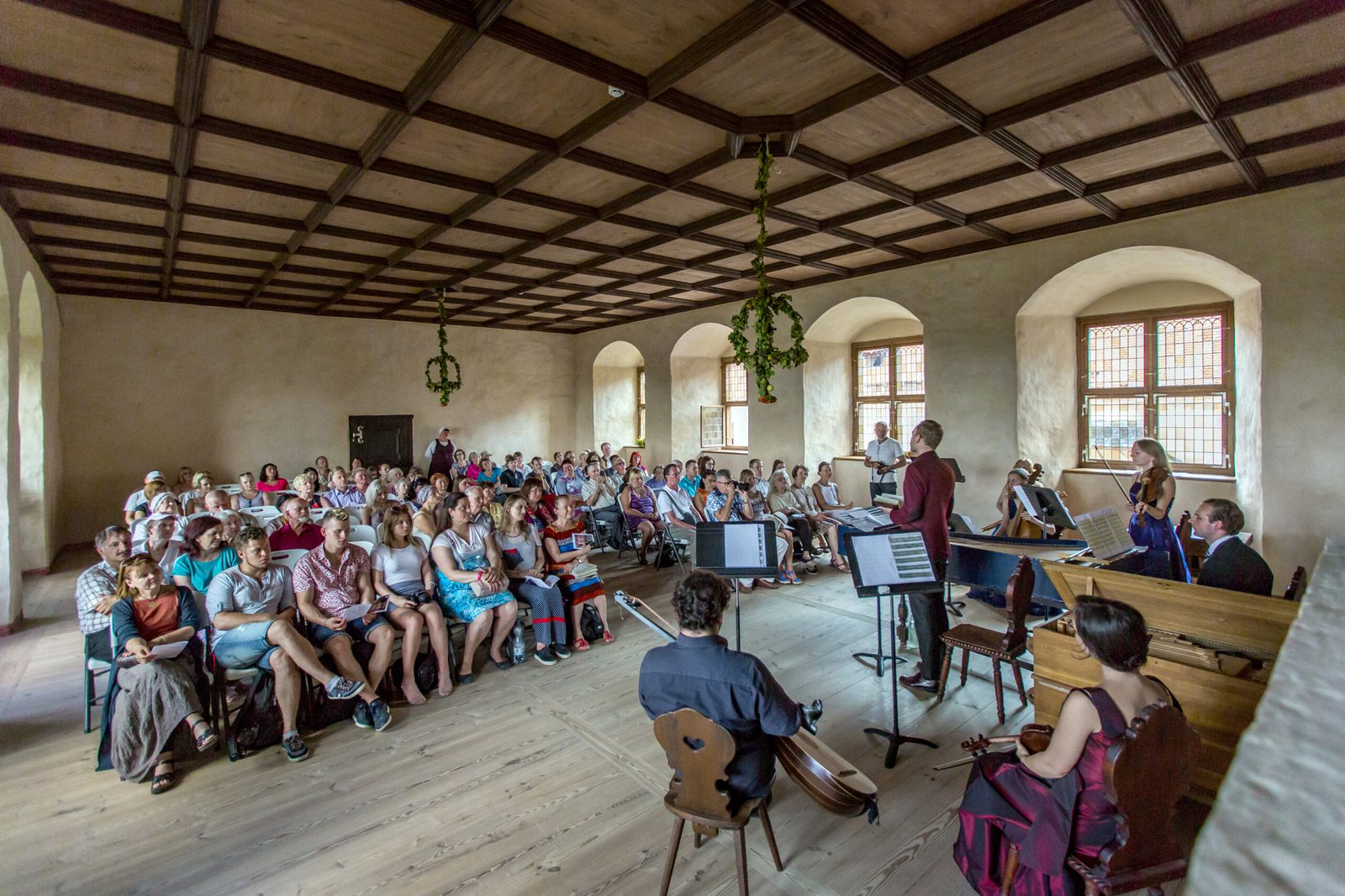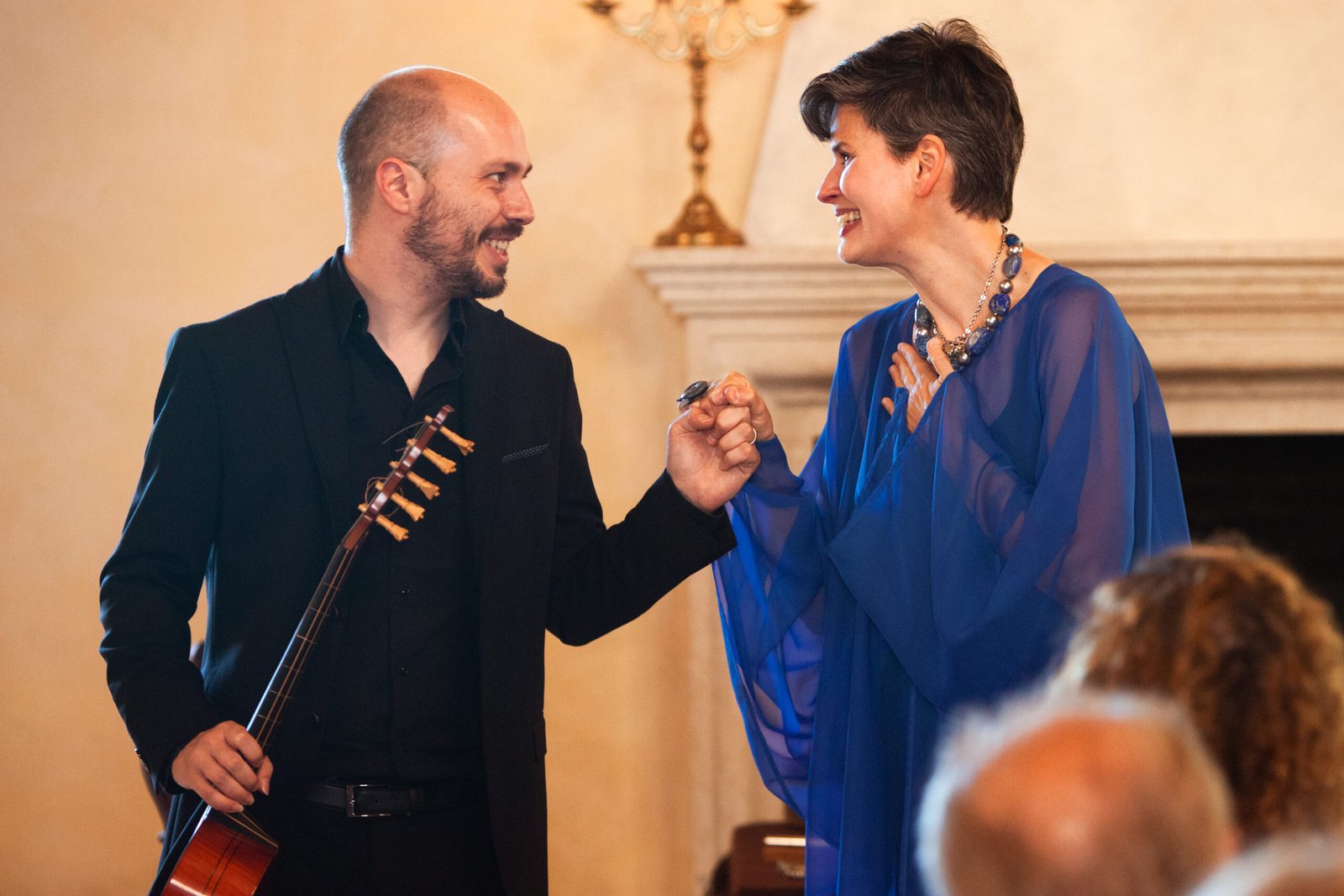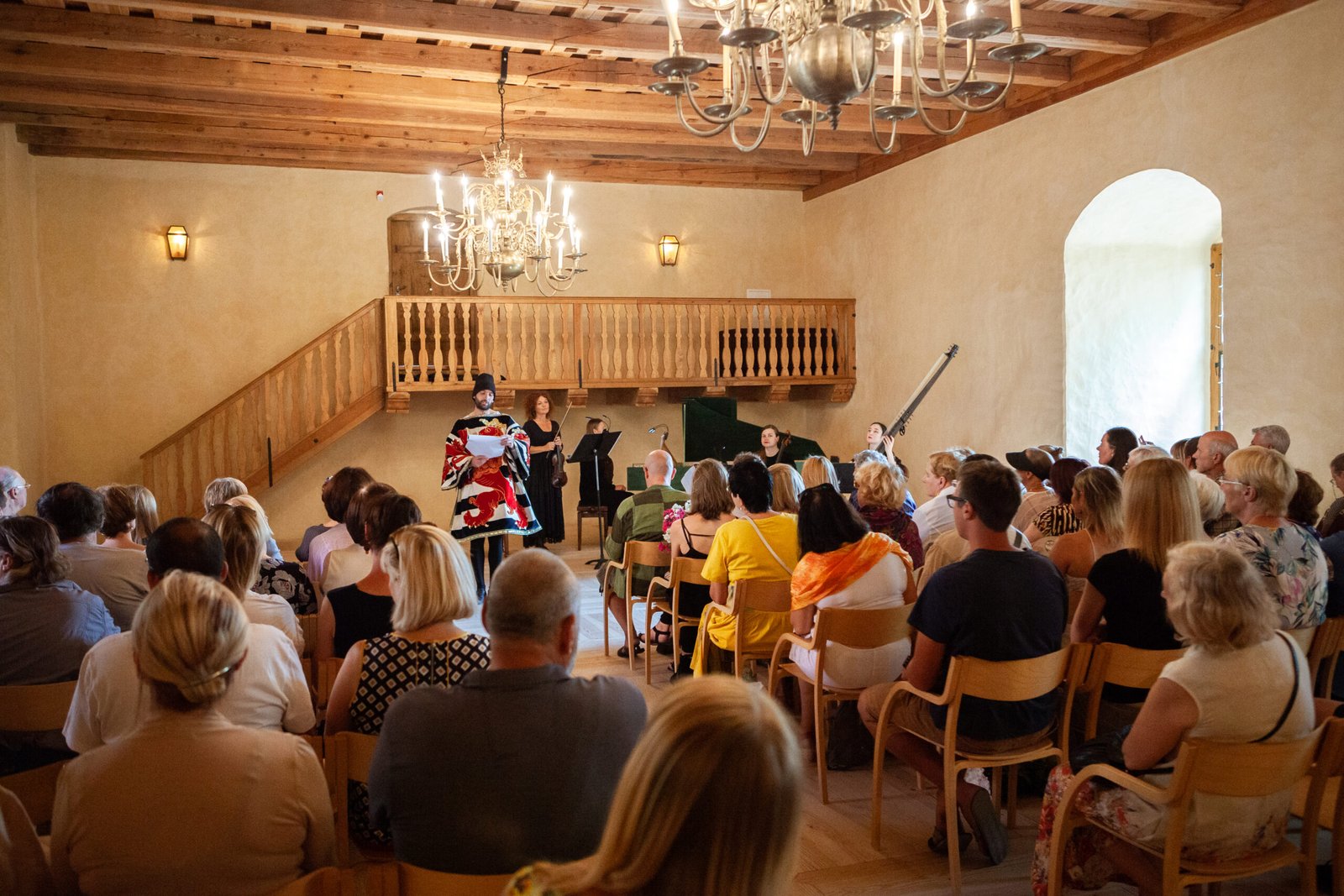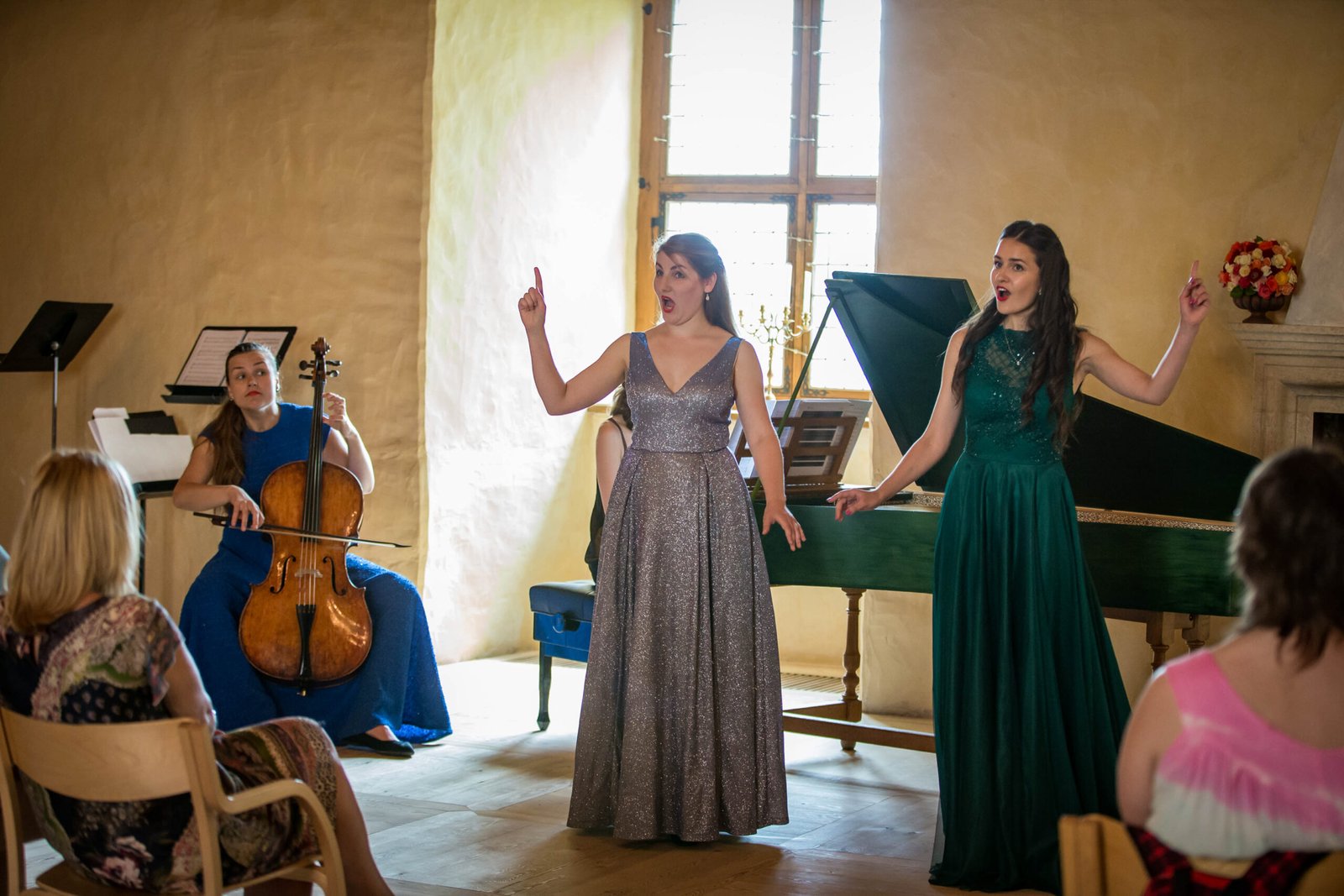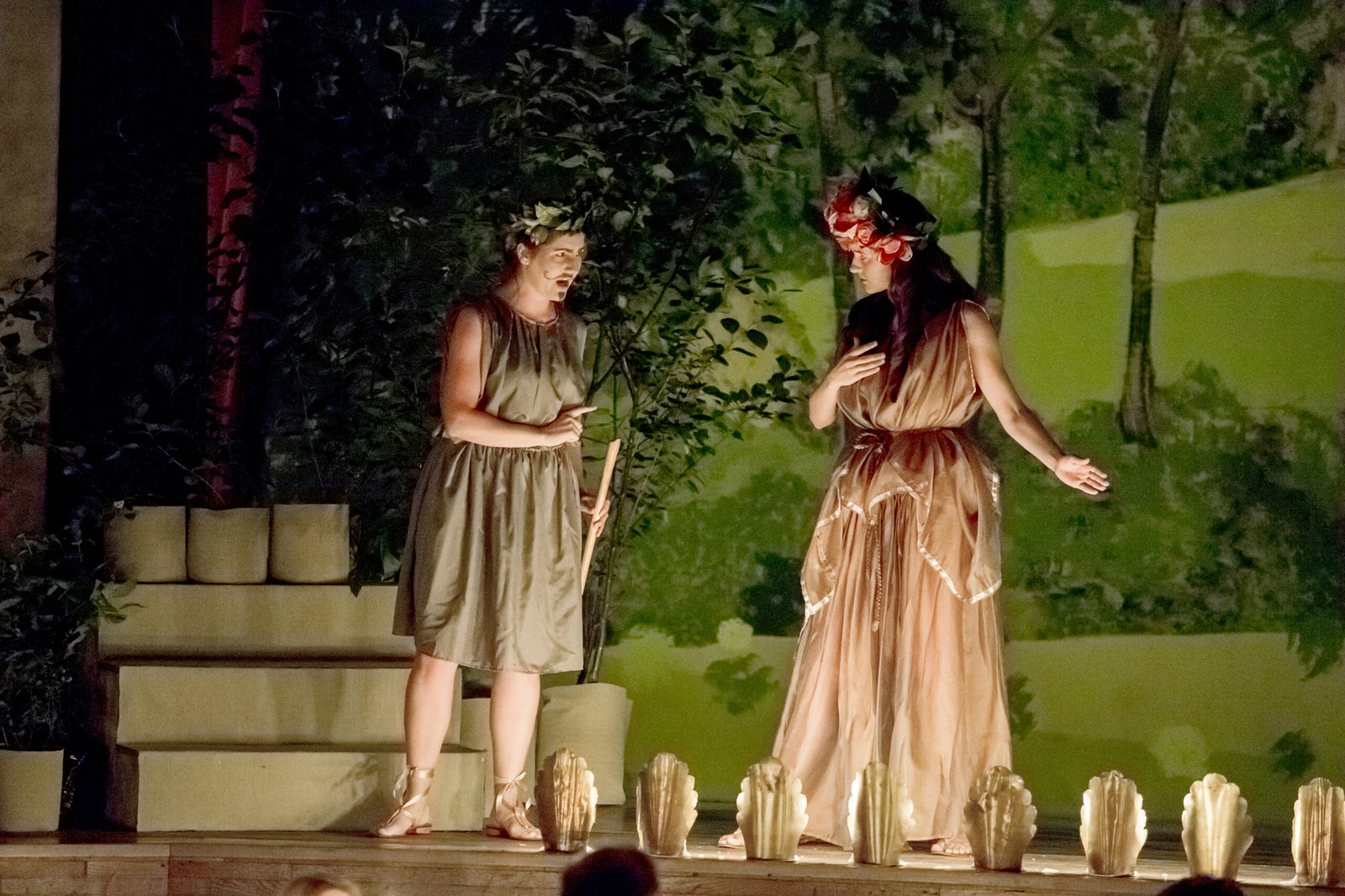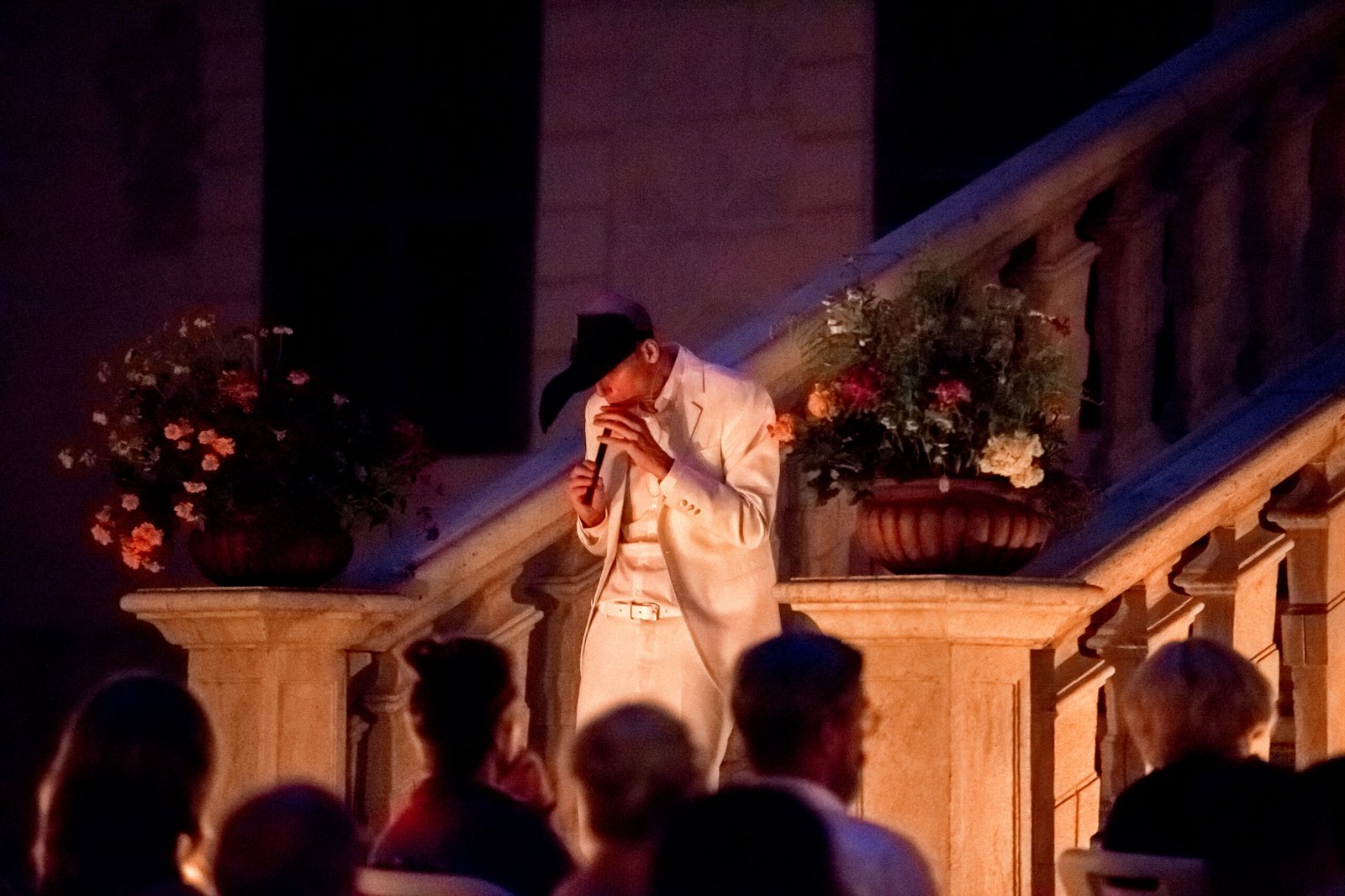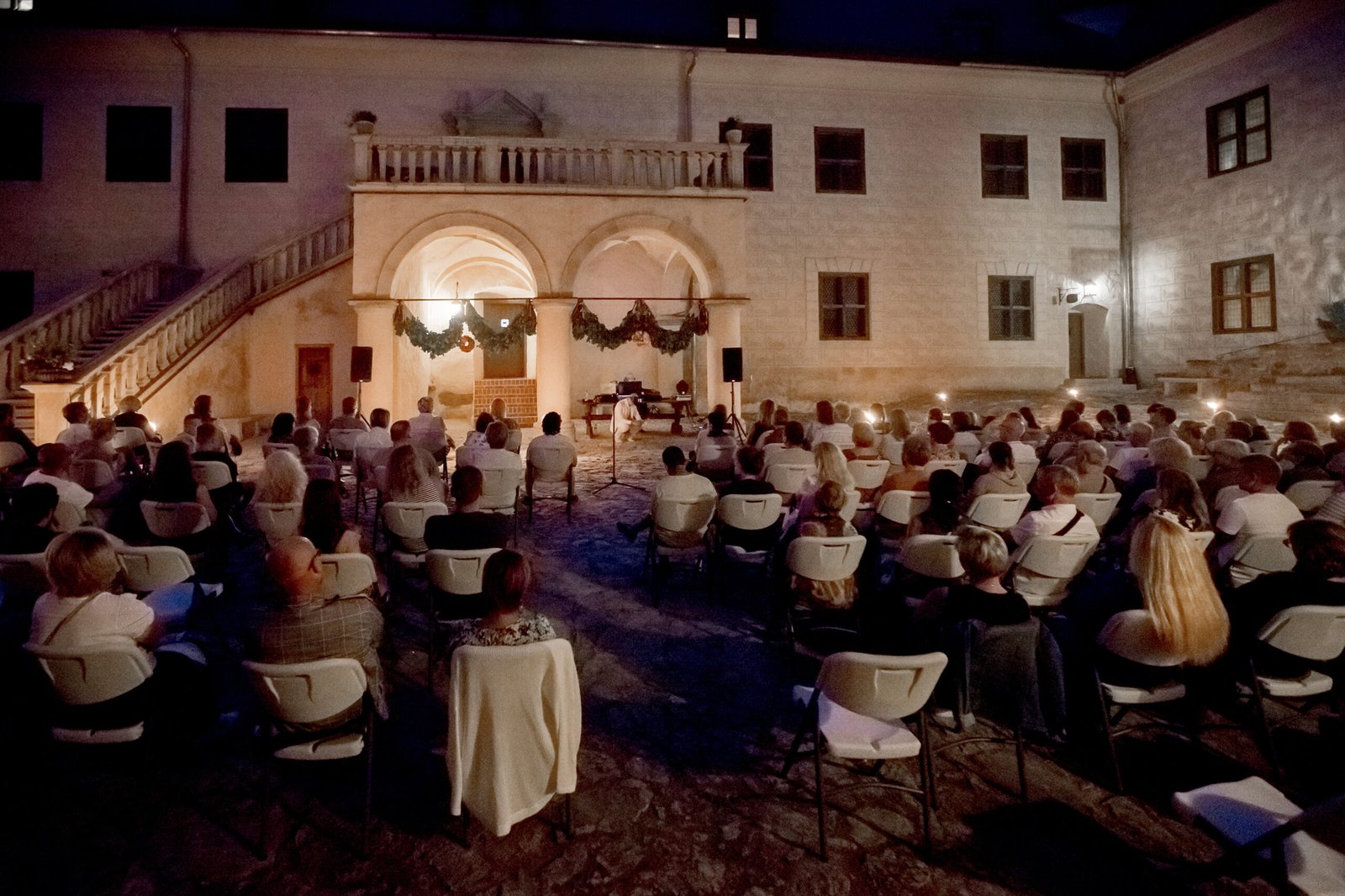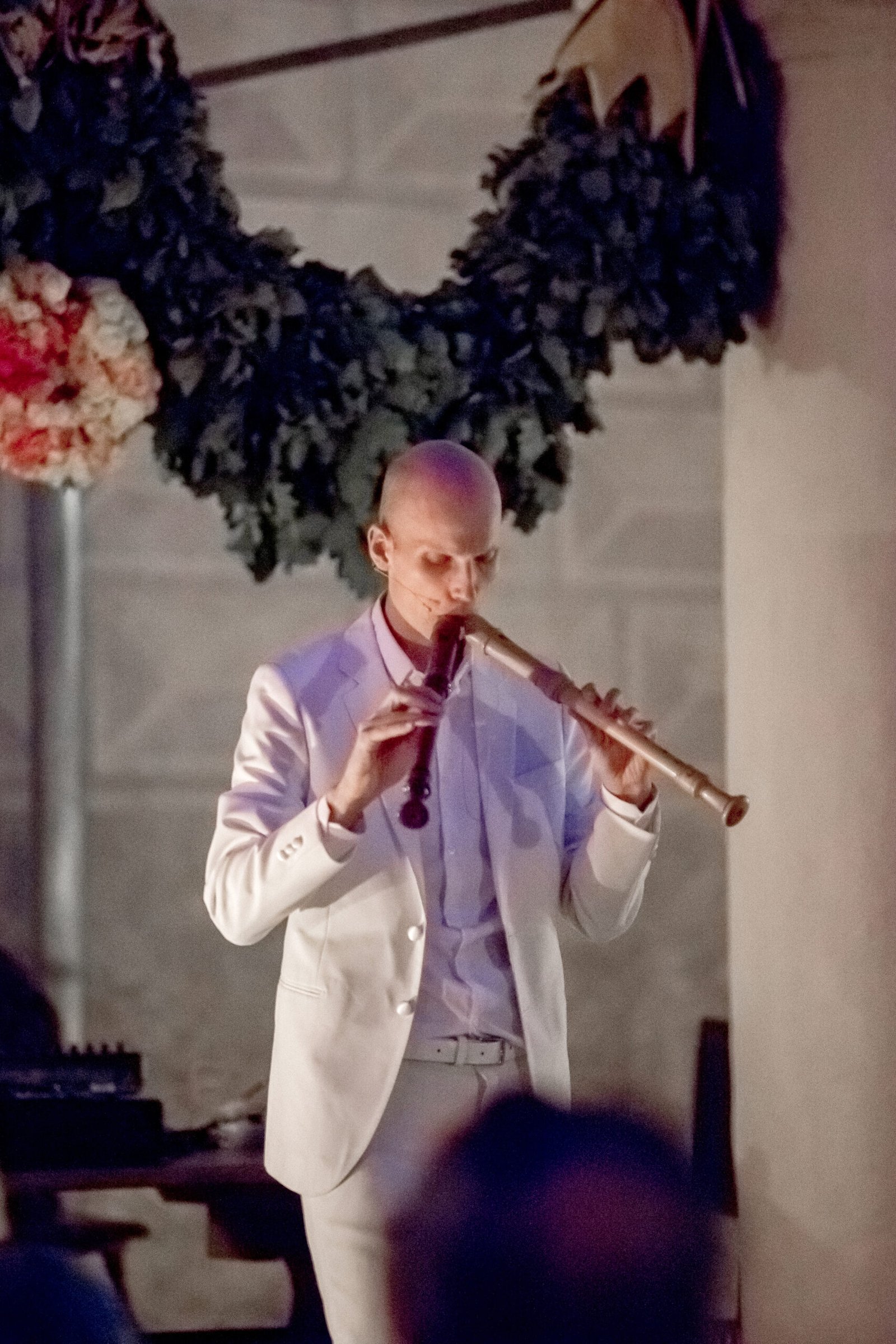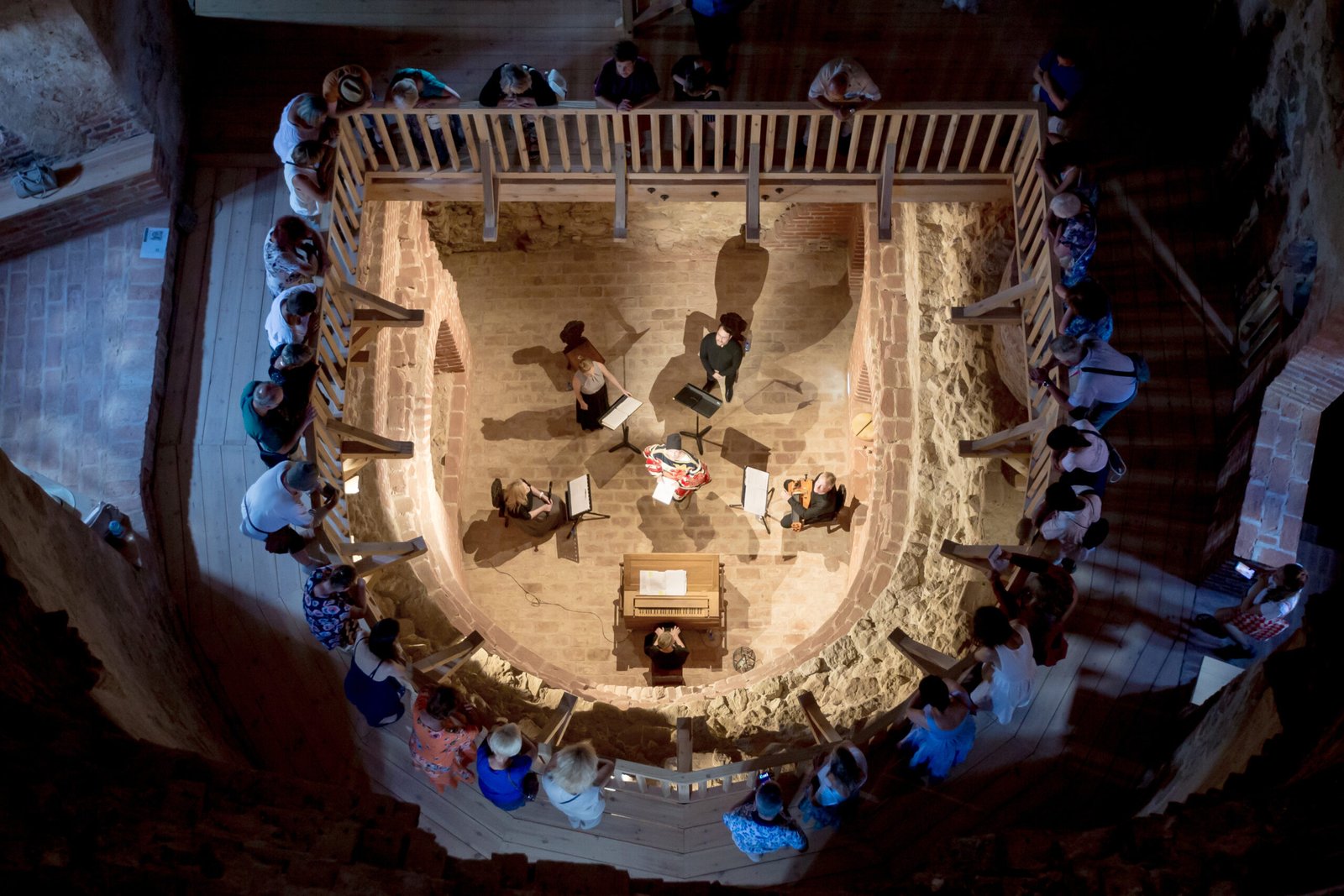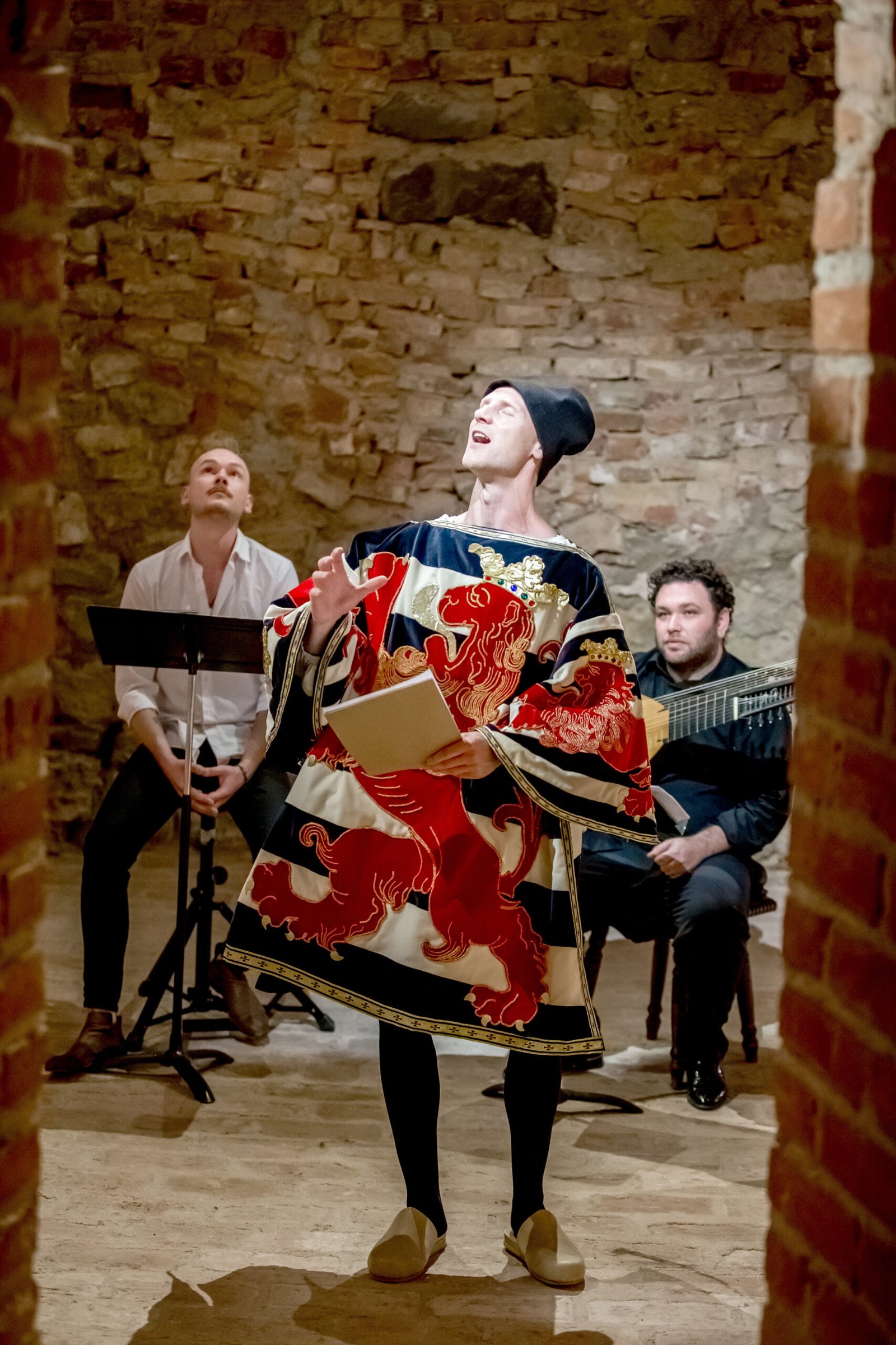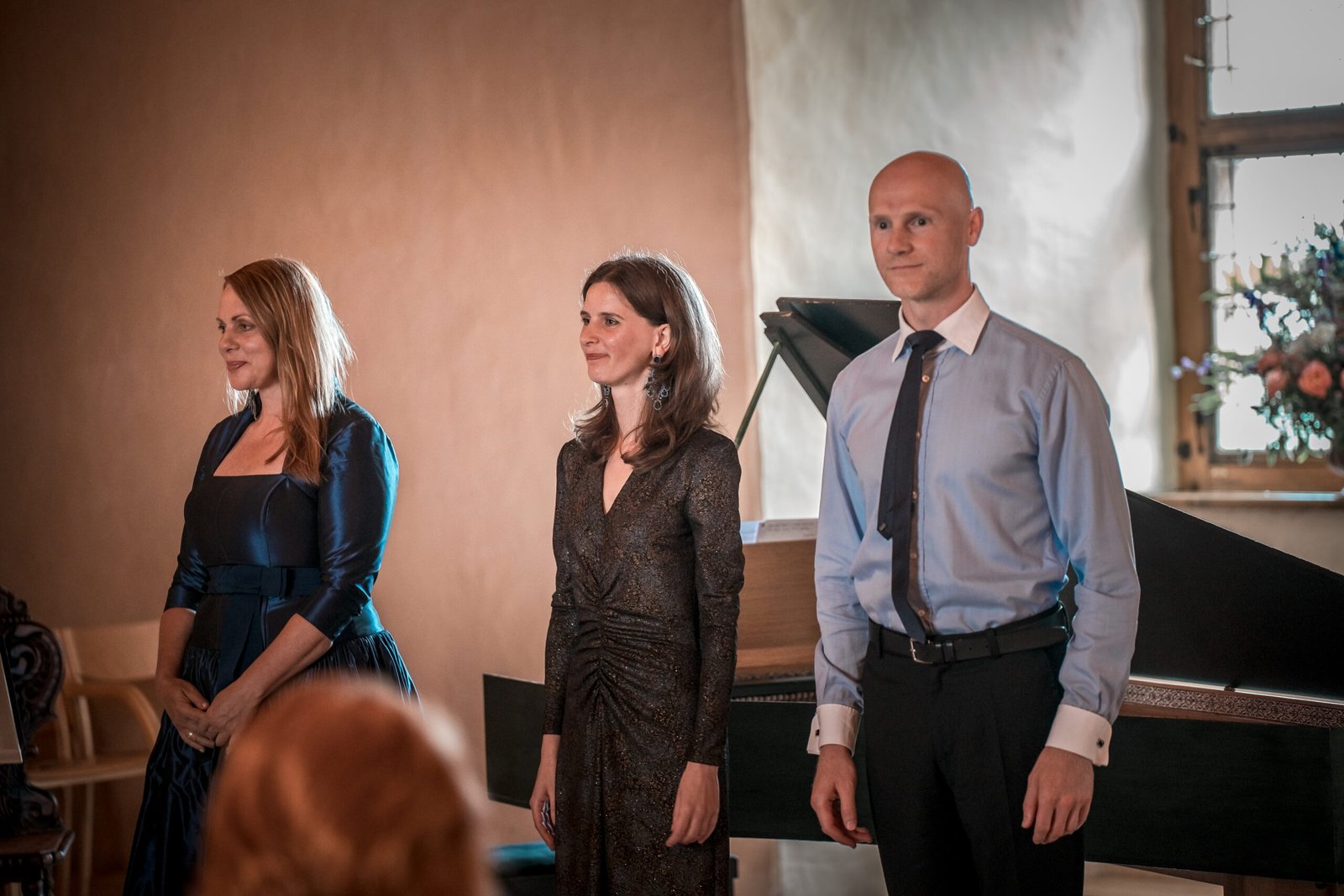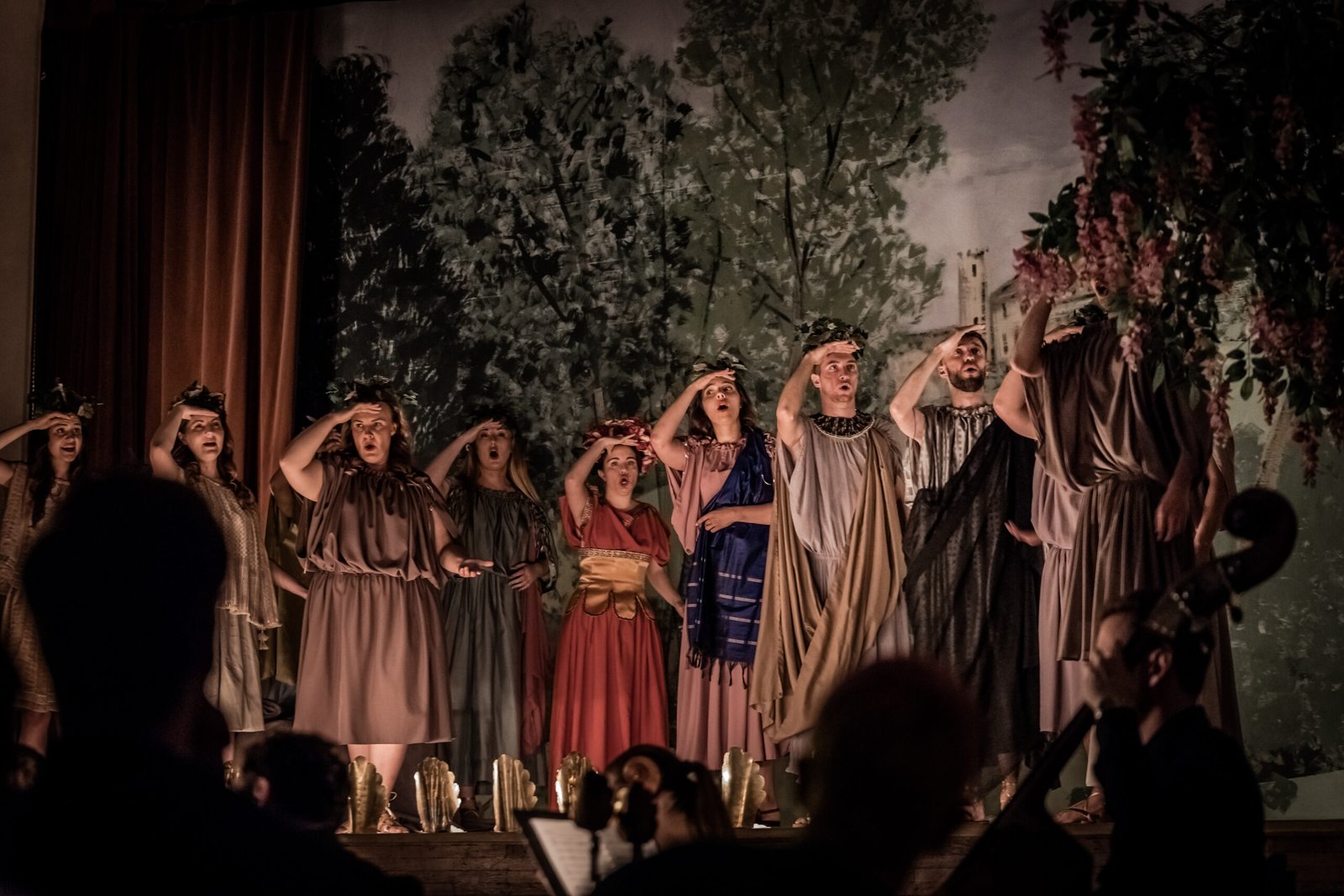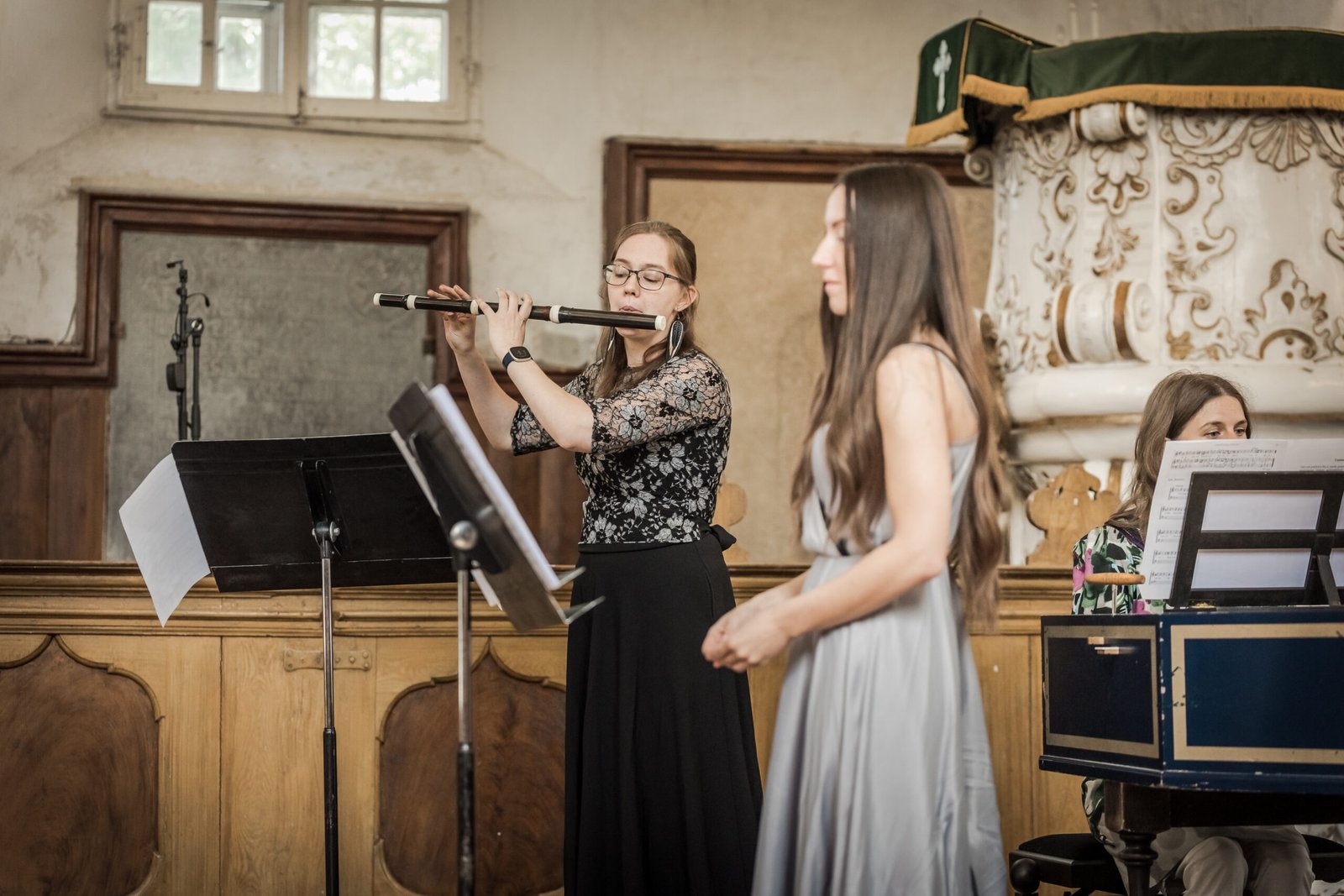VIVAT CURLANDIA!
Bauska
since 2016
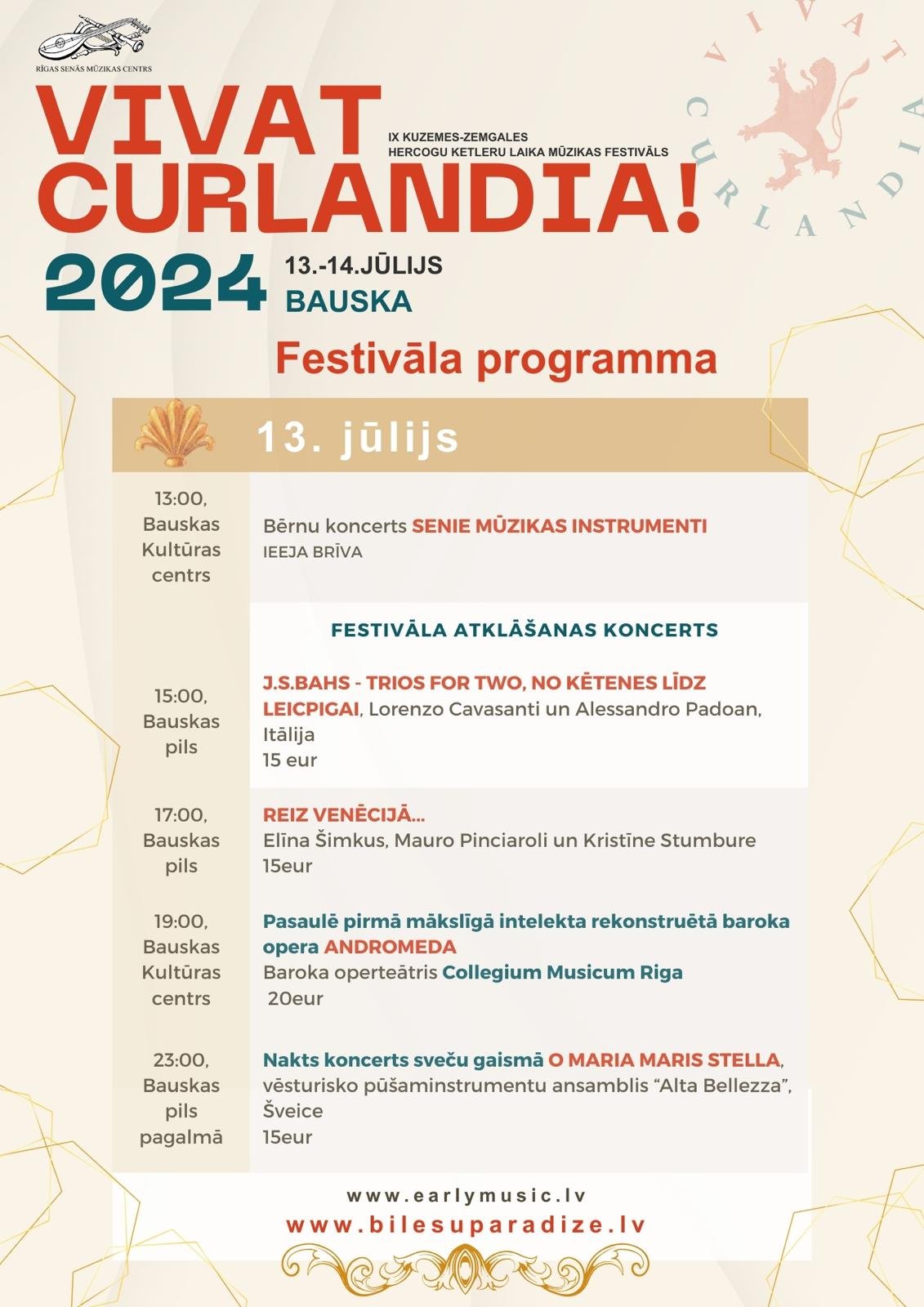
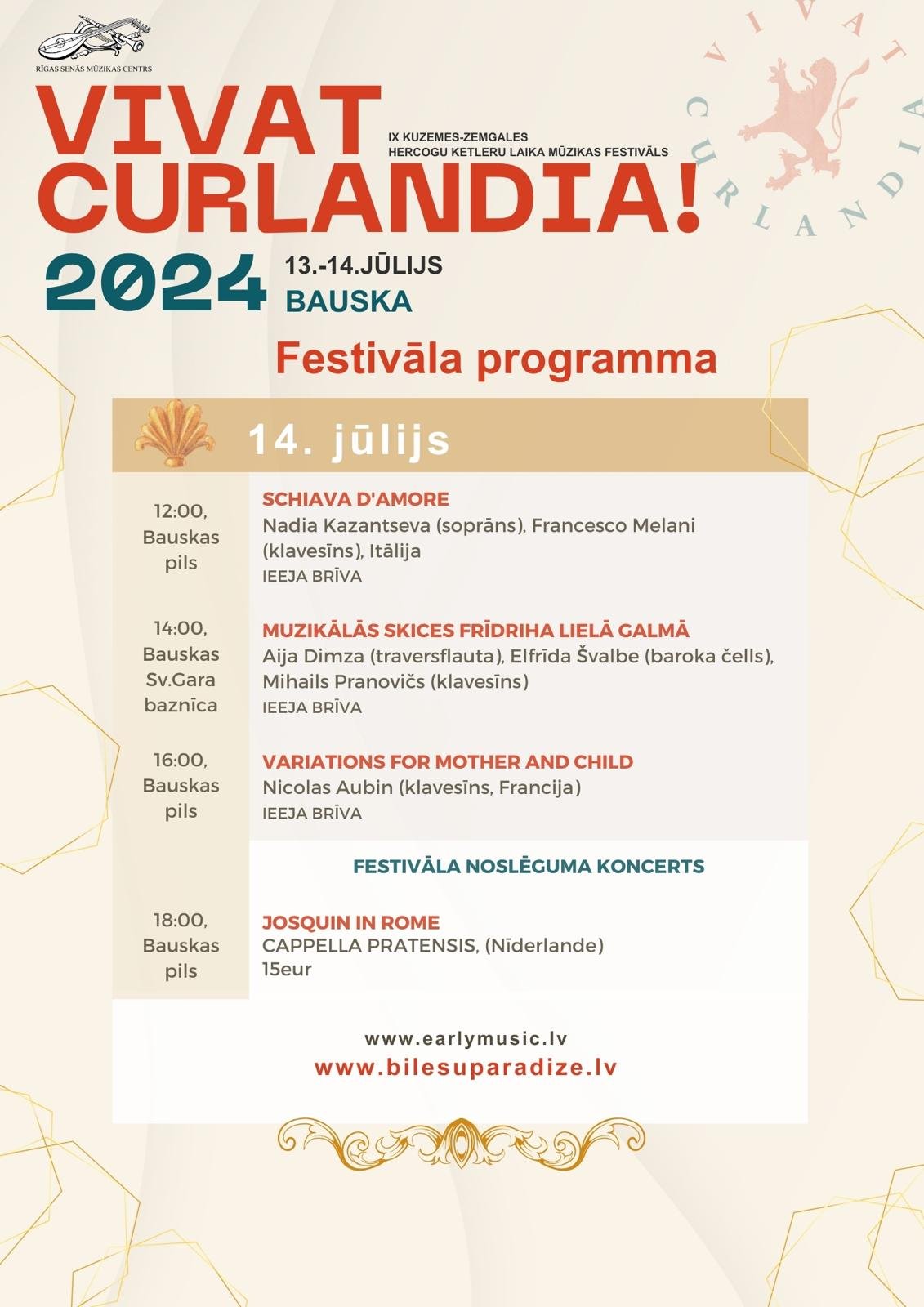

13th – 14th of July, 2024 I BAUSKA, Latvia
For already the ninth time, early music instruments, historical dress, opera by candlelight, superb medieval music groups from abroad and local early music practitioners will turn the Latvian town of Bauska into a place where one can see, hear and feel what everyday life was like for people in the Middle Ages, Renaissance and Baroque period through a vivid celebration of early music – the Vivat Curlandia! music and arts festival devoted to the time when the Kettler dynasty ruled in the Duchy of Courland and Semigallia.
The festival will feature early music concerts over the course of two days, drawing hundreds of listeners to Bauska Castle, the Bauska Cultural Centre and the Bauska Church of the Holy Spirit. It will also host a children’s morning programme dedicated to early music instruments and the most-awaited event of the festival – historical opera performed by candlelight. In year 2024 it will be opera Andromeda
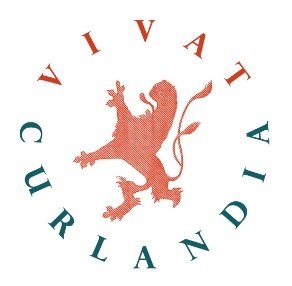
Follow the festival’s social media accounts:
Questions & Answers
Why did you choose Bauska as the site for the Vivat Curlandia! festival?
Vivat Curlandia! grew out of the early music festivals and events devoted to the Middle Ages and Renaissance period that took place here in the 1990s and for which fans of early music feel a certain nostalgia. The castles and palaces built in Zemgale (Semigallia) during the reign of the Kettler dynasty were the first in the area of present-day Latvia to represent the secular Northern Renaissance style of architectural and professional art. They brought with them the seeds of Renaissance-era European thinking, culture and art, which undoubtedly also influenced the development of culture beyond the borders of Zemgale. Today, Bauska is the only example of secular Renaissance and Mannerist-style architecture we have that was not completely destroyed by the wars of the 17th and 18th centuries and that represents this period in the history of Latvian material culture.
We have many festivals to choose from in Latvia. What makes Vivat Curlandia! unique?
The feeling of travelling back in a time machine combined with an atmosphere that’s very pleasing to the eyes and ears!In 2016, the historical performance of Claudio Monteverdi’s opera L’Orfeo (1607) took place under the evening sky in the courtyard of Bauska Castle. The following year we established a new event at the Bauska Cultural Centre – and one that is extremely rare in Europe – namely, opera performances by candlelight. To date, Latvian interpreters of early music together with guest artists have performed Giulio Caccini’s Euridice, Monteverdi’s Combattimento di Tancredi e Clorinda, Giacomo Carissimi’s Jephte, Marco da Gagliano’s La Dafnea, Sartorio’s L’Orfeo, Landi’s La morte d’Orfeo and Lully’s Acis et Galatée which were long lauded for its unprecedented authenticity and historically accurate production in a candlelit atmosphere. In 2024 will be staged and performed [will be clarified in the coming months]
Which musicians have performed at Vivat Curlandia! to date?
So far, Vivat Curlandia! has hosted and delighted audiences with performances by the early music groups Quartetto Vanvitelli (Italy), ApotropaïK (France), Ex Silentio (Greece), Ensemble [hanse]Pfeyfferey (Germany), Intemperata (Poland), Alla francesca (France), Alta Bellezza (Switzerland), Duo Dolcemente (Germany), Le Concert de l’Hostel Dieu (France), Eloqventia (Spain), Le Voci delle Grazie (The Netherlands), Chiaroscuro (Lithuania), La Camerata Chromatica (France), Ensemble Caladrius (Germany), Neymann Ensemble (Latvia, Austria, Italy), Fabella Ensemble (Latvia), Ensemble UNICORN (Austria), Rumorum (Switzerland) -, soloists Romina Basso, Alberto Mesirca, Mauro Pinciaroli, Gian Andrea Guerra (Italy), Erik Bosgraaf (The Netherlands), Chloé de Guillebon (France), Zita Mikijanska (Germany), Mantautas Krukauskas, Alina Rotaru, Vilimas Norkūnas (Lithuania), Maria Viksnina (Ukraine), Ūla Kinder (USA) and others as well as leading early music ensembles and soloists from Latvia, including Collegium Musicum Riga, Collegium Choro Musici Riga, Elīna Šimkus, Ieva Sumeja, Monta Martinsone, Ilze Grēvele-Skaraine (soprano), Rūdis Cebulis (sopranis), Ansis Bētiņš (tenor), Rinalds Kandalincevs (baritone), Edgars Skarbulis, Sergejs Martinovs, Daniils Kuzmins (bass), Gertruda Jerjomenko (harpsichord) and many others.
What can you suggest to someone who really wishes to hear a concert but cannot afford a ticket?
We want to encourage all fans of early music and give them the opportunity to be real connoisseurs of art no matter what their financial means. That’s why, like every year, also in year 2024 part of our concerts at Vivat Curlandia! will be FREE OF CHARGE. To see which ones, check the 2024 festival programme (published a few months before the start of the festival).




